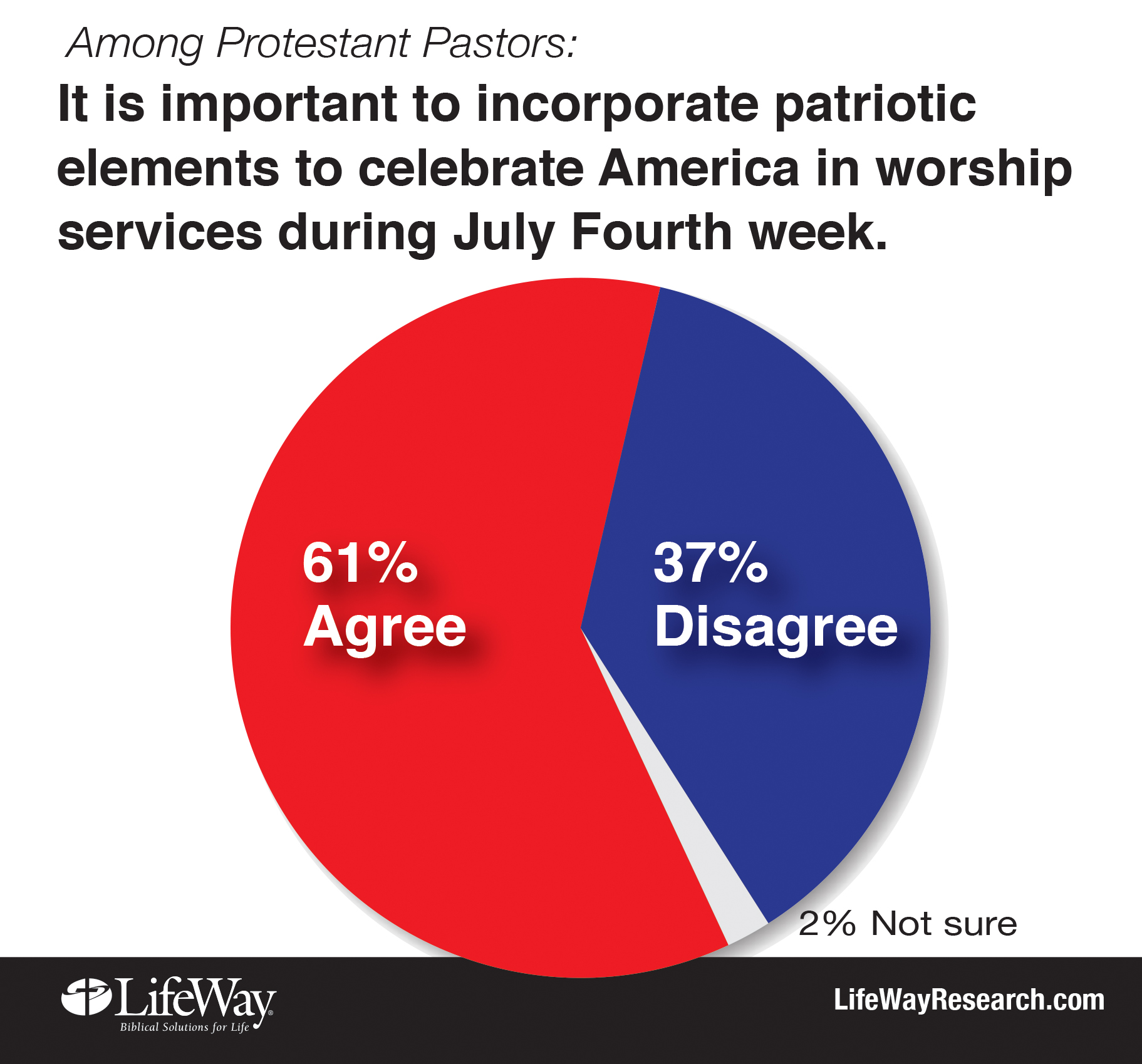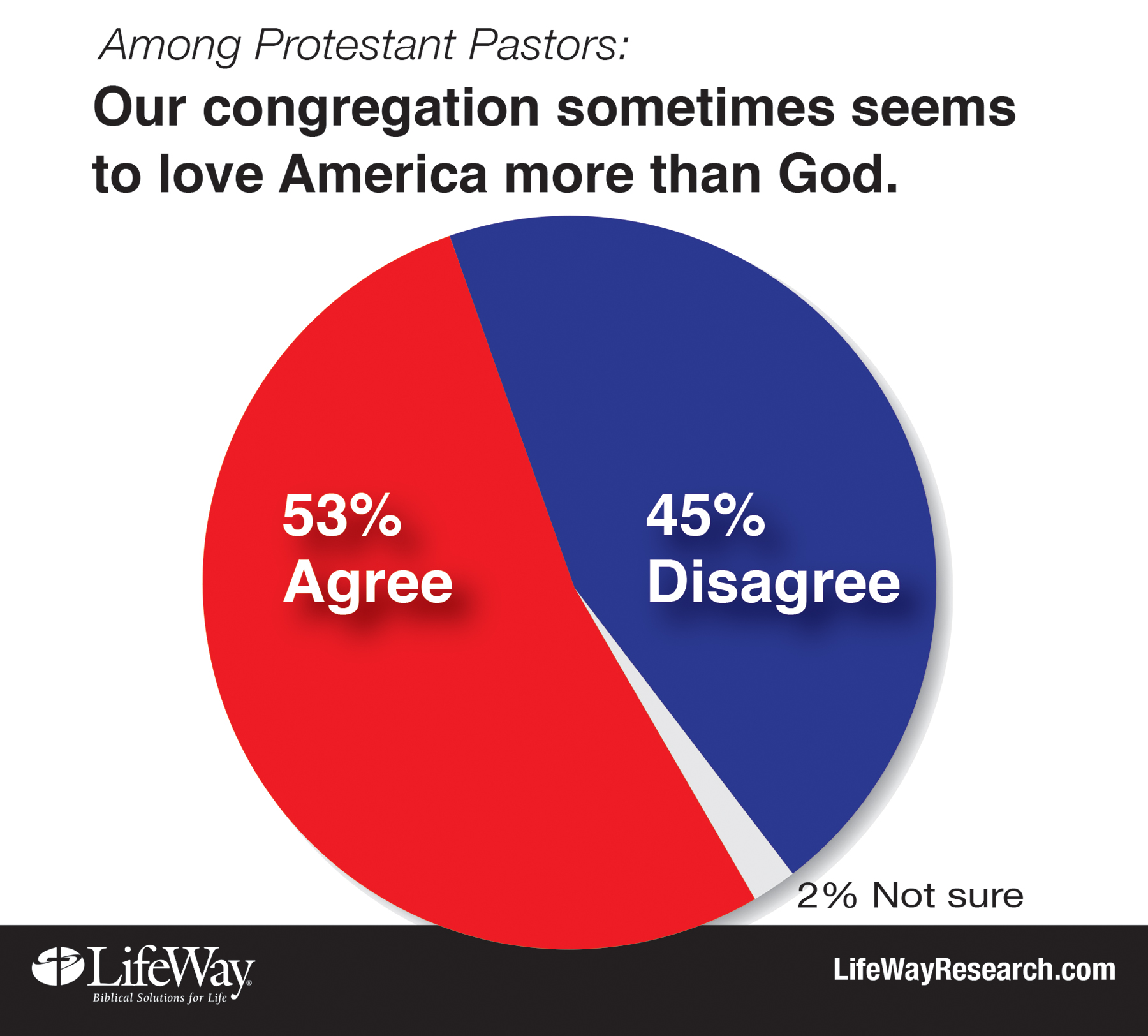I suspect that almost all Christian congregations acknowledge patriotic holidays in some way as part of their liturgies. All the same, I was somewhat taken aback by a survey that indicates that among Protestant pastors 61% felt that it was important to mark the July 4th holiday not simply with prayers for the nation but with “patriotic elements” in the service.

Perhaps I am over-interpreting this, but it seems to me that a “patriotic element” means more than asking God to bless our nation; it implies showing a kind of honor and reverence (dulia if not latria) to the nation. This is perhaps borne out by the view of a majority of Protestant Pastors that their congregations love America more than God.

I suspect the numbers aren’t all that different among Catholics in the United States, since we spent the first 70 years of the twentieth century trying to prove that we loved American as much as if not more than anyone else. If the incorporation of patriotic elements into the liturgy is any less frequent in Catholic congregations, this may well be more a matter of having a relatively fixed liturgy than it is of a difference in our underlying attitude.
So, is there a legitimate place in Christian worship for the expression of patriotic sentiment, in which we offer honor and praise to the nation, ritually display flags, preach sermons that give America a providential role in world history, or sing songs like the Star Spangled Banner (which does not even mention God)? Are these legitimate acts of inculturation, or does it somehow corrupt the liturgy of a body that is supposed to transcend national boundaries, actually encouraging parishioners to love America more than God? If the trick is to strike a balance, where is that balance found?

Leave a Reply